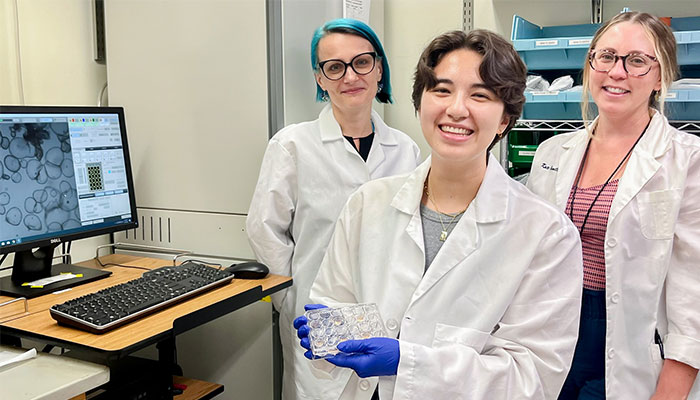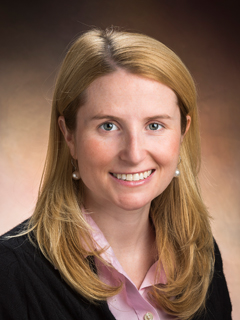HOW CAN WE HELP YOU? Call 1-800-TRY-CHOP
Muir Laboratory
The Muir Lab aims to improve the lives of children with eosinophilic esophagitis (EoE) and prevent the devastating consequences of esophageal inflammation and subsequent fibrosis. Among its many complications, esophageal fibrosis is the most striking complication of EoE, predisposing subjects to recurrent food impactions, emergent endoscopy, impaired esophageal motility, and esophageal stricture.
The Muir Lab works to develop novel approaches to detect and treat fibrosis and inflammation in the esophagus. Studies emphasize the dynamic interplay between the epithelium and fibroblasts in order to pursue a detailed understanding of homeostatic signaling mechanisms in esophageal mucosa. The lab uses 3-dimensional in vitro models and in vivo models of allergic disease, in addition to heavily utilizing patient-derived biopsies and serum specimens.
In addition, the lab has ongoing clinical/translational studies evaluating esophageal remodeling. The team employs a technique that uses high-resolution impedance palimetry (EndoFLIP) to determine the distensibility of the esophagus and better appreciate ongoing esophageal remodeling. Current studies seek to better understand the natural history of EoE during the maturation process and the effects of long term disease activity in pediatric EoE.
Dr. Muir also co-directs the Gastrointestinal Epithelium Modeling (GEM) Program which uses patient-derived organoids to drive discovery. The GEM Program supports research that incorporates findings from the lab and at the bedside to develop new therapies for pediatric gastrointestinal diseases such as EoE, inflammatory bowel disease, Hirschsprung disease, and celiac disease.

Project Highlights
- The role of lysyl oxidase in esophageal fibrosis in eosinophilic esophagitis;
- Epithelial-fibroblasts interactions and the inflammatory milieu in eosinophilic esophagitis;
- Esophageal distensibility in pediatric eosinophilic esophagitis.

Amanda B. Muir, MD
Attending Physician
Dr. Muir investigates the mechanisms underlying esophageal fibrosis to improve therapeutic and diagnostic approaches.